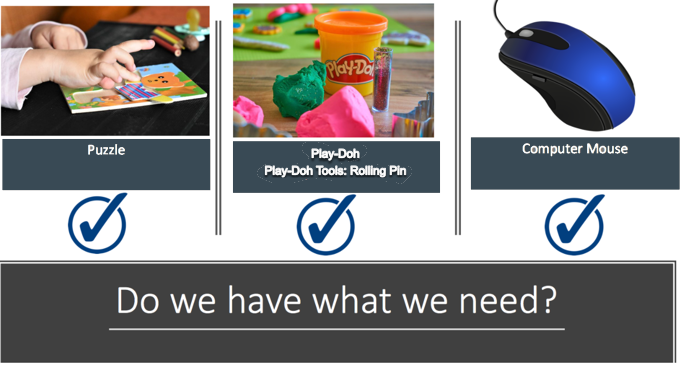Question
Can you give an example of a pediatric treatment provided via telehealth? What is the typical length of the session? How much do the parents need to be involved?
Answer
1)What does a typical session look like?
This is a treatment example for an 8-year-old boy with goals for handwriting (fine motor and visual perceptual). I would email the caregiver the night before with the time for the 30-minute session and any supplies needed. I also use a PPT as a visual schedule.
Step 1: Collaborate with parents on a reward for the student.
Step 2: Ask the parents to have certain the items ready:
Step 3: Use a visual schedule with the student on PowerPoint so they can cross off as an item is completed.
2) What is the typical length of a session?
It depends on the age of the child and if there is a facilitator present. Typically, I do 30-minute sessions.
3)How much do the parents need to help during these sessions?
It depends on the child's age and attention. However, after a few sessions, a routine is often established and this tends to decrease the need for a facilitator. It is important and helpful to have a routine or schedule with the session and use a 2:1 ratio. You work on 2 easier or preferred tasks for every non- preferred activity.
For more information on the topic of "Telehealth in Pediatrics", please check out the
OT Virtual Cafe chat.



